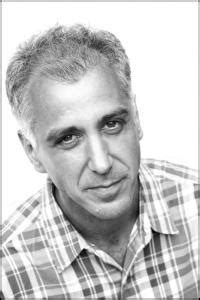A Quote by Kehinde Wiley
I think that one of the questions that I asked of myself in later years was to this point of the political directive.
Related Quotes
As does every young man studying philosophy, I naturally asked myself questions about the truth of all this, and about the meaning of freedom, predestination, and liberty of choice and so on. But to have asked questions of yourself about it, I think is not too important. Let's say - I remain - I remained a believer.
I spent the better part of a week trying to figure out how to organize these stacks of 30 years of conversations and dialogues. I finally began clustering them in these different categories, and I ended up with the ones you listed.It's interesting to me the kinds of questions I haven't been called to wrestle with. For example, I don't know what this says, but I'm not asked a lot of political questions.
Political scientists don't work at banks which is a problem. As political issues become more important for the markets, analysts at banks are asked all sorts of questions they don't have the ability to answer. And if you're getting paid to answer questions as analysts at banks are you never want to be in the position of saying you don't know.
All I did was collect a few of the questions I've been asked through the years, write up a brief response and put them in this publication. As a pastor, you get asked questions and receive emails. Many of them I had answered, but just in conversation. So we kind of re-crafted the question and answered it. It turned out to be an interesting exercise. I hope it's encouraging for people.
When I search myself carefully I do think it's from my mother. I even feel strange saying that. Most people, I believe, when they're asked profound questions about their own persona are not really able to enunciate it, because it's a combination of so many things. But certainly influences early on that I felt from my mother. I wouldn't say she was "political" per se; she was sensitive to other people.
Iceland sets a world-record. The United Nations asked people from all over the world a series of questions. Iceland stuck out on one thing. When we were asked what do we believe, 90% said, 'ourselves'. I think I'm in that group. If I get into trouble, there's no God or Allah to sort me out. I have to do it myself.
Matt Lauer asked her [Hillary Clinton] tough questions, in fact, questions that should have been asked and followed up on by the FBI in their investigation where they came to a rosy conclusion. So to me, this was actually very helpful. And I think obviously it was big moment there, right out of the bat when we had the naval officer who really put it to Hillary and said listen .







































